TIMOTHY OLYPHANT IS considerably grayer now than when he last appeared on screen as Raylan Givens, the gunslinging lawman who won over audiences on FX’s Justified, but that hasn’t dampened the character’s appeal.
If anything, the time between the original series ending in 2015 and Raylan’s return this year in FX’s new limited series Justified: City Primeval has only made Olyphant’s Deputy U.S. Marshal even more popular. The series’ six seasons are remembered fondly by fans and critics alike as a standout show—a bridge between old school cable TV procedurals of the past and the era of streaming prestige television we live in today—filled with iconic performances, a distinctive setting, and one of the most highly-regarded finales in recent memory.
Justified: City Primeval takes the neo-western out of Harlan County, Kentucky, where Raylan grew up (and dug coal) and shifts the setting to Detroit, fudging the IRL timeline and jumping forward to a setting that comes 15 years after the original series’ conclusion. This move is a radical change for the show, justifying the reboot by challenging the character’s established strengths and giving Olyphant some new dynamics to explore in the role. The actor has a long list of credits over a career spanning nearly three decades (including another excellent show, Steven Soderbergh’s Full Circle, that just concluded its run on Max) , but he has been especially adept at portraying lawmen like Raylan.
This isn’t a new archetype—these men follow a personal code as much as the rules they’re bound to enforce, blurring the line between hero and anti-hero—but Olyphant possesses the ability to portray both the inner conflict and outward resolve needed to make the roles captivating. Another of these characters has already been given the reboot treatment; he played Seth Bullock on Deadwood, the sheriff of the cult-favorite HBO series that ran from 2004 to 2006, then was capped off by a feature film in 2019.
Like the original Justified series, City Primeval is based on the work of legendary writer Elmore Leonard. His novel of the same name features an urban standoff between a lawman and a trigger-happy outlaw with a citywide blackmail plot. The Raylan character isn’t in the book, however, so the show’s writers made some changes bring him into the story. This led to new plot lines—including the addition of his now-teenaged daughter, along for the ride after an attempted carjacking leads them to Detroit. This father-daughter dynamic is especially potent, in part because Willa Givens is portrayed by Olyphant’s real-life daughter, Vivian, in her debut role. As Raylan squares off with Clement Mansell (played with unhinged aplomb by Boyd Holbrook) during the first few episodes, he grapples with the fact that Willa is never far from danger. Raylan sends her away to safety to end the third episode, however, and it’s not clear if she’ll return by the end of the series.
Raylan and Mansell both also contend with hyper-competent defense attorney Carolyn Wilder (Aunjanue Ellis), who dresses down Raylan when he first reaches Detroit and winds up representing Mansell in court, helping him to avoid arrest. There’s an unmistakable sexual tension between Raylan and Carolyn that builds through the first three episodes, boiling over at the end of the fourth when Carolyn seemingly invites Raylan in to spend the night while he keeps watch outside her home for vengeful Albanian gangsters.
At its halfway point, City Primeval has seemingly set up all the pieces needed for an explosive conclusion: a wildcard killer with blackmail material that could take down the city’s power players, a tough lawyer trying to win real respect, a neighborhood fixture ready to level up, a vigilante Albanian mob boss, and (of course) Raylan Givens. In an interview conducted before SAG-AFTRA went on strike, Men’s Health spoke to Timothy Olyphant for his take on Raylan in 2023, fatherhood on-screen and on-set, and more.
Men’s Health: How do you feel that Raylan has changed over time, and now that the audience sees him in a new context? How hasn’t he changed, and what does that say about him?
Timothy Olyphant: I still think the job is the easiest part of his life. Everything else is a little bit tougher for him to navigate. He’s forced to do a little more listening these days than he used to. But I think he’s same guy, is just a little bit self aware, and he’s trying.
Raylan’s daughter is a part of this new series, and you’re acting opposite your daughter [Olyphant’s daughter Vivian plays Willa Givens, Raylan’s daughter]. How does introducing that dynamic change Raylan’s approach to the job? Does your approach to acting change, given that real-life relationship?
Well, having your kid on the set definitely makes you more aware of your behavior. I was like, ‘I’m not used to having my kid watching me here in this setting.’ I’m embarrassed to admit, there were times where I was like, ‘I need to give this some more thought.’ But it was such a special experience working with her. I don’t think either one of us saw it coming, and we feel very lucky. It was so fun to watch her work so hard and have so much fun at the same time. As a parent, that’s all you want. You want your kids to be happy, and part of that happiness is going to be finding something they can do to make a living that they enjoy, as opposed to something they’re just going to have to do to get a paycheck.
It was clear from the jump that she was really comfortable on the set, and she really hadn’t spent a lot of time on sets. But watching her discover everything about the job was fun to see. We actually had this wonderful experience where we had a few young people on the set who were all around that age—late teens, early 20s—some of which knew each other. There was a kid, Eli Glassberg, who was a PA on the set, and he grew up with my son and my daughter. They provided such a great spirit on the set, because they were kids in the candy store. And for me to be around that just reminds me how special the job is at the end.
I didn’t even realize upon watching the first few episodes that was your daughter, and then looked at the cast list. So some of that did come across.
Look, it wasn’t planned. We were writing the part—I say we, they were writing the part, but I was there bugging them in their ear—but that storyline had gone way down the road before we mentioned the idea that my daughter was available for the summer and could potentially play the part. She auditioned. So that part wasn’t planned. We had already compiled a list of actresses that we thought could do it. And then Vivian auditioned and jumped to the front of the list.
Barring that first encounter on the highway, I don’t think Raylan shoots anything or anyone, at least in the first four episodes. It’s kind of inextricable to the character that he’s not loose with his gun, but he doesn’t hesitate either. Does that signify progression?
It says more about the writers and the conversations we had. If we’re going to bring this character back, and bring the show back, we don’t want to do it without being mindful of how the world has changed around us. We always had thought we could bring it back down the road—there are examples, whether it’s old TV shows that would come back as little events, or the Bond series. The thing that they have always had the advantage of is being able to have that break, and then come back and reinvent the world.
One of the tricky parts of the serial was you start shooting people every week, and after a while, there’s a cumulative effect that you’re like, ‘What world are we even in anymore?’ And then you talk to people on the street, and they’re like ‘I just like when he shoots people.” And you’re like, well, okay, I don’t know why we’re worried about this. But we were mindful of it. And we thought because we had the opportunity to have this break and be able to come back, that we didn’t want to not be thoughtful about the world we’re in. And we were also cognizant that Raylan’s in that same world. If we’re bringing him back and he’s been around for the last 10 years, he’s dealing with it too. You can’t talk to a U.S. Marshal or a cop on the street that doesn’t tell you how their job has changed—for the better. They’re not not aware of everything we’re reading about, and they’re trying their best to adapt.
Creatively, we wanted to be part of the conversation. And I thought it was a really cool challenge, if you will, if we could do the show and be true to the to what was so great and fun about the show, and not have him pull that gun. How far can we go and still feel like we give people the same entertainment value we gave them before? Will they still come with us?
One thing that serves as a way to understand the Raylan character is the last line of the pilot. Raylan is talking to [his ex-wife] Winona, and she tells him “you’re the angriest man I have ever known.” Do you feel like that still rings true for the character in City Primeval? You’re talking about him changing in the face of the world—do you feel like he still exhibits that type of masculinity?
I was talking to a journalist the other day who said at the end of the second episode they don’t think they’ve ever seen Raylan as angry as they saw him in that moment [Upon finding Mansell with Willa, Raylan takes Mansell outside, beats him, and threatens to kill him]. Then I talked to another journalist who hadn’t yet gotten to that part, and said he seems more chill than he’s ever seen.
I remember thinking, ‘Oh, this guy’s telling me he seems way more relaxed than he’s ever been.’ I wanted to tell him just keep watching, buddy. It’s there. He’s still got it—it just depends what’s going to bring it out. I think he’s the same guy, and like anyone, you scratch at that, it’s gonna rear its ugly head. But he’s trying.
One thing fans who watched the original Justified series will be looking for in City Primeval is any reference to Boyd Crowder [the outlaw counterpart to Olyphant’s lawman Givens, played by Walton Goggins]. Raylan does tussle with a Boyd from Kentucky—Boyd Holbrook, playing new antagonist Clement Mansell. Do you think that he offers a similar foil to Raylan as Crowder does in the original series?
I wouldn’t try to compare those two performances—they’re two very different types of performances. They’re both incredible actors and good friends of mine. Both of them also are as good as it gets. They’re good dudes, and really good at what they do. I feel lucky to work with each of them. I thought Holbrook did a wonderful job of making it his own.
There’s a coolness to him, and there’s a weight to that performance that makes me think, ‘Oh, this guy could take Raylan out. This guy has the gravitas. Raylan might be messing with the wrong dude.’ I remember feeling that a little bit working with [Michael] Rapaport in Season 5 [the actor played Darryl Crowe, Jr., head of the Crowe crime family]. There’s a scene with Rapaport with this young kid, and I just thought, ‘Oh, this guy could kill Raylan.’ It’s a little bit what I felt like doing some of the scenes with Boyd.
The other main addition to the series is Carolyn Wilder [played by Aunjanue Ellis]. Do you feel like that dynamic continues a pattern for Raylan of maybe succumbing to desires rather than making responsible decisions, in terms of his intimate partners? After tension through their first shared scenes, Episode 4 [Kokomo] ends with Raylan and Carolyn sharing a drink, and it appears that Carolyn might be inviting him into her home to spend the night. Or do you think that this is a new type of responsible relationship, as he’s older and has a little bit more knowledge about what might get him in trouble?
They might both be playing with fire. I do want to say that working with Aunjanue Ellis was one of the great acting experiences of my life. That woman is a force of nature. I’m a better actor for having worked opposite her. It was just so great, being able to throw the ball back and forth with her. We were so lucky to get her on board.
That relationship is, for my money, one of the most interesting parts of the season. I mean, arguably, it’s enough of a reason to bring the show back, just to see Raylan and Carolyn together. I just dug that storyline and I thought that was so different from anything we’ve done before, and yet felt like the same old show. I don’t want to give anything away where it’s headed, but I love that the two of them have found some sort of common language.
It’s definitely a ‘met his match’ type of moment.
Oh my God, that’s how I felt working with her. I was like shit—I’m in trouble.
This interview has been condensed for content and clarity.
Brett Williams, a fitness editor at Men’s Health, is a NASM-CPT certified trainer and former pro football player and tech reporter who splits his workout time between strength and conditioning training, martial arts, and running. You can find his work elsewhere at Mashable, Thrillist, and other outlets.


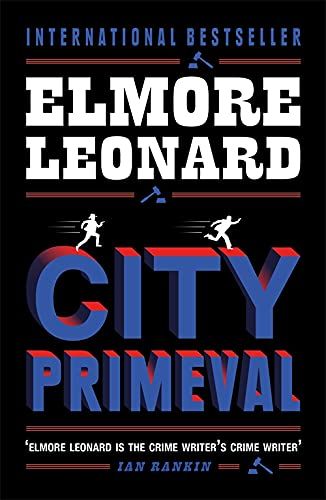
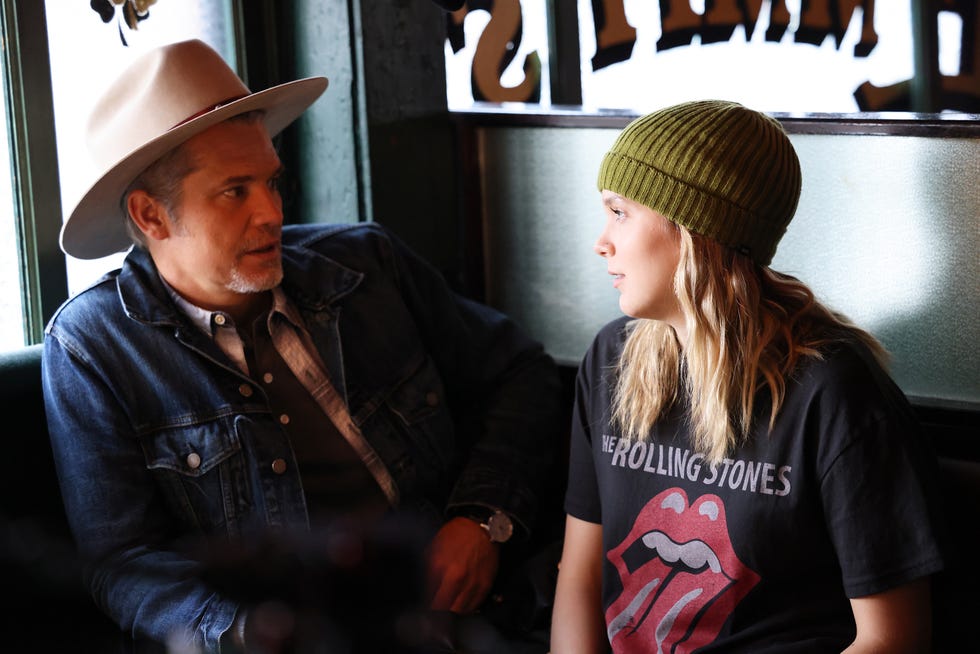
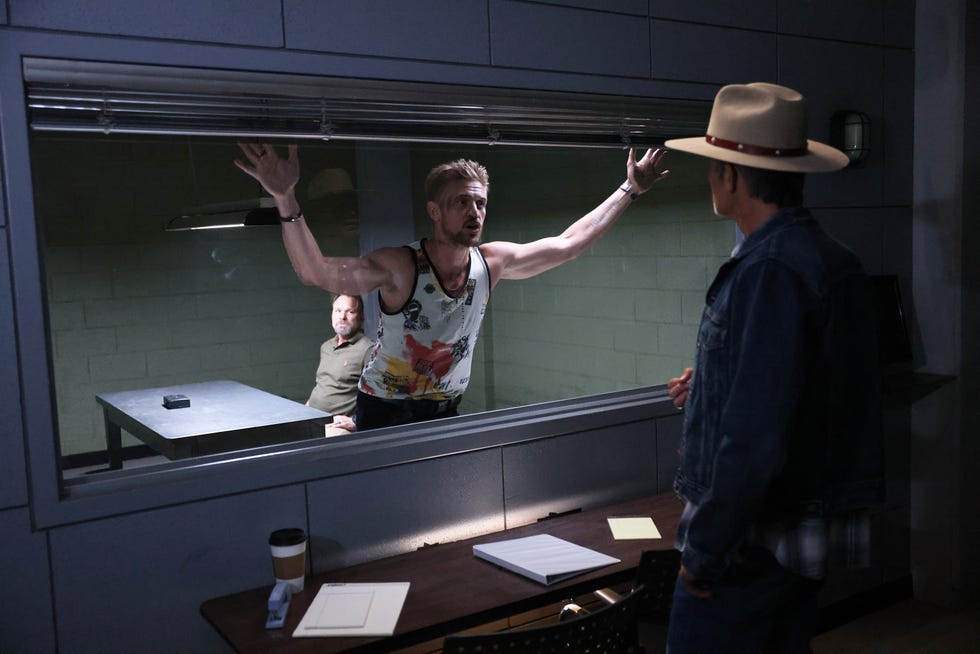
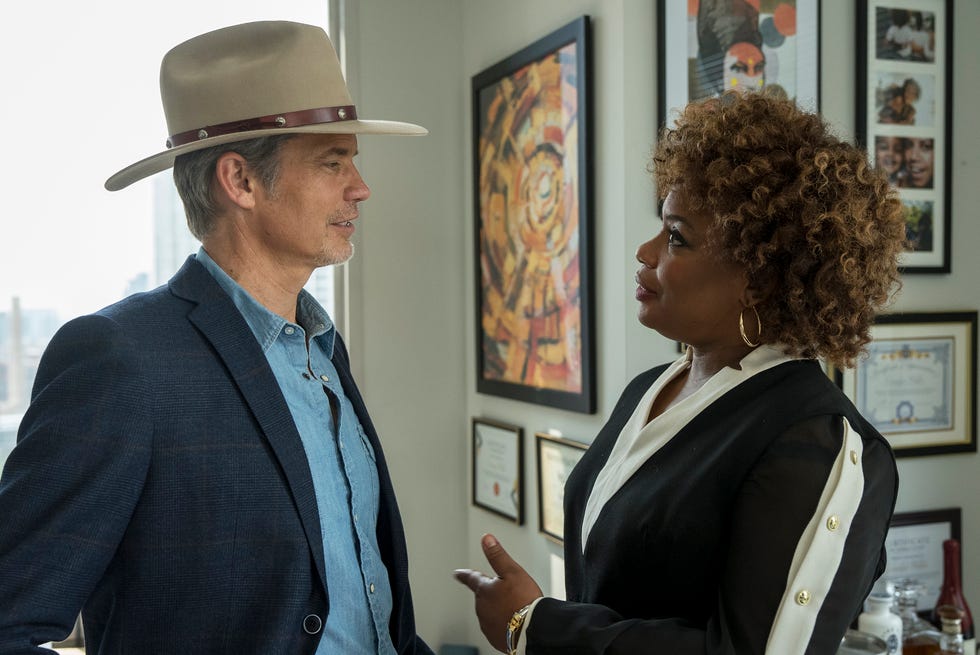
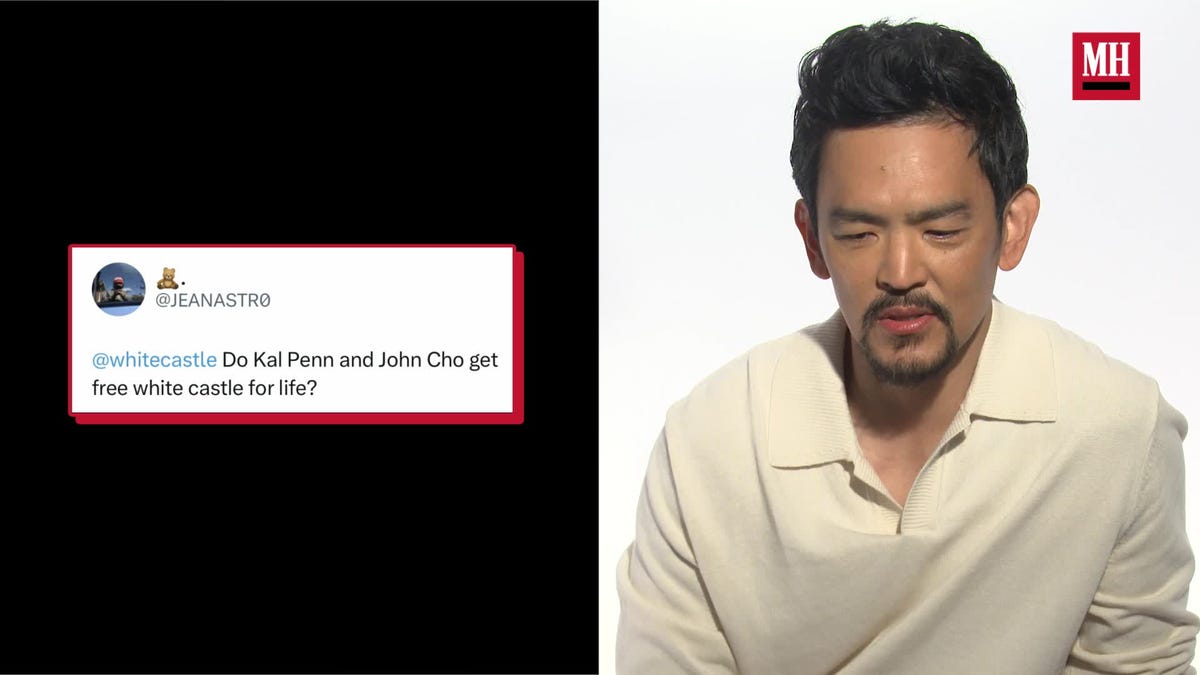
Comments are closed.